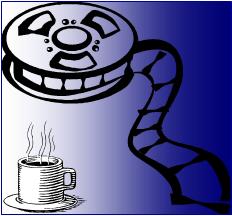

|
 |
Love Song for Bobby Long ___ (9/10)
|
Please go to the new Coffee Coaster site implemented more gracefully in Wordpress. This page: http://brianrwright.com/CoffeeCoasterBlog/?p=5835 |
John Travolta ... Bobby Long
Scarlett Johansson ... Pursy Will
Gabriel Macht ... Lawson Pines
Deborah Kara Unger ... Georgianna
Dane Rhodes ... Cecil
David Jensen ... Junior
Clayne Crawford ... Lee
Lawson Pines: Some people reach a place in time where they've gone as far as they can. A place where wives and jobs collide with desire. That which is unknowable and those who remain out of sight. See what it is invisible and you will see what to write. That's how Bobby used to put it. It was the invisible people he wanted to live with. The ones that we walk past everyday, the ones we sometimes become. The ones in books who live only in someone's mind's eye. He was a man who was destined to go through life and not around it. A man who was sure the shortest path to Heaven was straight through Hell. But the truth of his handicap lay only in a mind both exalted and crippled by too many stories and the path he chose to become one. Bobby Long's tragic flaw was his romance with all that he saw. And I guess if people want to believe in some form of justice, then Bobby Long got his for a song.
A sad deficiency in this reviewer's reading history is that he paid too little attention to the more poetic novelists, particularly those held up as literary icons of the South—such as William Faulkner or Samuel Clemens. A brief foray into Wiki land, shows Southern Literature to be this bright-umbrella field of its own covering some of the more influential authors we've grown up with. Say, Harper Lee and To Kill a Mockingbird or Margaret Mitchell and Gone with the Wind.
The reason
I bring up my lack of familiarity with Southern expression is that watching Love Song for Bobby Long I imagine the movie is how the quintessential Southern novel would transmute itself onto the screen. Recognizing that New Orleans is sui generis, even as a Southern setting, one sees in Love Song all that one associates with the slower, warmer, deeply floral, musically textured way of living down there. One also sees the haven for lost souls, where regardless of the particular life's flailing that knocked you down, people gather 'round you in a mutual effort at restoration... or not.
Whether you go back to the fight or stick around, you belong here, here in the tender, familial embrace of New Orleans. When the character Lawson Pines (Gabriel Macht)—the words above are read as narrative text from his novel about Bobby, to close the movie—"sees what is invisible and knows what to write," he's pointing out that this is not only a place for getting restored, it's a destination for those who crave the reality of life... the emotional—sometimes stark, always honest—reality. This movie is Pines' narrative poetry, presumably from the real author (Ronald Everett Capps), in motion.
The literature of the South, much less that of New Orleans, is not to be weighed in rigorous Randian terms[1], in which plot dominates all else. Rather—and this is my general understanding of the genre— characterization is all. Of course, a character without a plot, without a story, isn't a character at all: The main character, Bobby Long (John Travolta) has fallen from a pinnacle of social respect as a published author of great fiction and a celebrated professor of literature at Auburn University. [A tragedy occurs.] Bobby convinces his protegé, Lawson Pines, to come with him to New Orleans to rekindle the creative spirit and start again. (Reminiscent of the Robert Duvall movie, The Apostle.)
The two of them settle into a life of wine, women, and song—well, as time goes on, much more wine than women and song—and generally proceed, seemingly comfortably, down the path toward bumdom. They're staying in a rundown house in an old neighborhood, which belonged to a woman—a singer with substance-abuse issues of her own—that Bobby wrote about and once loved. One day, the woman's teenage runaway daughter, Pursy (Scarlett Johansson), shows up on the doorstep. The remainder of the movie is how the relationships get sorted out, and whether Bobby stops his slide into oblivion and Lawson writes the Great American Novel (of the South) for which he is supposedly destined.
So what's so interesting about that?
Good question. Love Song for Bobby Long is one of those movies that
starts out for most people as a one- or two-star movie, then adds a star each time you view it. I say view it, but what I really mean is take it in. This is a film that needs to be taken in from the bottom up, from the senses up toward the intellect. Do not reverse the flow. The cinematography is full of flowers and color, yet as focused as a surgeon's scalpel when necessary... such as the scene at the shipping docks where Bobby and Lawson ponder the meaning of their past. Musically, the movie lives up to its title: not only is Bobby—and a large number of the "invisible people" around him—full of ambling tunes, himself, the score is like program music[2] for the seasons of nature and of people's lives transpiring before us. Makes you want to take up the guitar.
I remember commenting that despite the rather ramshackle crib and other buildings, such as the neighborhood bar, all the scenes from the film seem drenched in strong primary colors. Perfect complement to the wildflower garden one of Bobby's friends maintains.
Not only sight and sound, but touch and even taste. There's a texture to this film, and the voluptuous Scarlett Johansson is the perfect actress to play Pursy, all curves and sultry sensuality. She has some lines and does factor into the plot, but, as far as I can see, her purpose in the film is to accentuate or channel the rest of the scenery.
She's a woman in bloom, the fundamental reason for everything.
As I say, Love Song is a novel coming to the screen. It's more poetry than prose, or prose that has risen to the effect of poetry. Listening to Macht's voice—which has a gentle, unpolished deep timber—the narrative delivers all the impact of a literary mind in full. The conceptual faculty, not derogated but rendered as a part of the artistic mosaic, fits here. It even rules... or at least makes itself felt as a positive presence.
As our own lives move forward, seeing Love Song tends to make us reflect, give a little forgiveness to ourselves and to others. Pause and smell the purslane:
Cecil: Your mama thought you were golden so we named you after yellow flowers and corn. This is you here...
[cuts some purslane from garden]
Cecil: ...pretty, golden purslane.
Pursy Will: Purslane's really a weed, you know. A neighbor told me when I was 9 and I ran over his tomato plants. He said all gardeners hate purslane.
Cecil: Yeah, and dandelions. Doesn't stop kids from making wishes on 'em.
Great performances, especially in the minor roles, of the people even more 'invisible' than Bobby.
I'm looking forward to the third time I watch it... for the fourth star. (And to hell with that damned hurricane.)
###
[1] Ayn Rand was once asked what were the three most important elements in a novel, and she answered, "plot, plot, and plot."
[2] "Program music" is a term that originated in a classical music context to mean suggestive of something actually happening in reality, e.g. Beethoven's Pastoral Symphony (the Sixth), esp. the thunderstorm sequence.
 |
 |
|||
| |